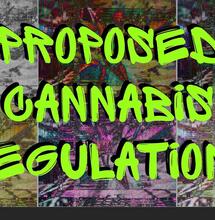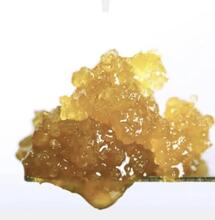Charges For Federal Weed Offences Fell in 2022

The U.S. federal government only charged 806 individuals with cannabis-related offences in 2022. This displayed a marked decrease from previous years and another sign of moving law enforcement preferences.
The charges comprised only 4% of federal drug cases in 2022. Nevertheless, the data was included in the U.S. Sentencing Commission’s latest report.
The small number of cannabis-related charges echoes the United States’ increasingly easygoing approach to cannabis.
According to data from NORML, The National Organization for the Reform of Marijuana Laws, the 806 individuals charged last year symbolise a substantial decline from 10 years ago, when nearly 7,000 people were arrested for violating federal cannabis laws. The data conveyed that 99% of the people charged in 2022 were indicted for drug trafficking.
Cannabis remains illegal federally in the U.S., but many states and cities are passing their laws.
Washington is predicted to follow suit sooner rather than later, however. Last year, in October, President Joe Biden signalled a significant shift in U.S. cannabis policy when he pardoned thousands of individuals who held federal convictions for cannabis possession.
“ no one should be in jail just for using or possessing marijuana. Sending people to prison for possessing marijuana has upended too many lives and incarcerated people for conduct that many states no longer prohibit. Criminal records for marijuana possession have also imposed needless barriers to employment, housing, and educational opportunities. And while white and Black and brown people use marijuana at similar rates, Black and brown people have been arrested, prosecuted, and convicted at disproportionate rates.” - President Joe Biden, 2022
“Too many lives have been upended because of our failed approach to marijuana. It’s time that we right these wrongs,” he added.
The President also urged Governors to follow suit concerning individual state offences.
In addition, Biden requested “the Secretary of Health and Human Services and the Attorney General to initiate the administrative process to review how marijuana is scheduled under federal law.”
“Federal law currently classifies marijuana in Schedule I of the Controlled Substances Act, the classification meant for the most dangerous substances. This is the same schedule as for heroin and LSD, and even higher than the classification of fentanyl and methamphetamine – the drugs driving our overdose epidemic,”
The pardons do not apply to those convicted of selling or distributing cannabis. The move is designed to help clear obstacles for those trying to get jobs, find housing, or apply for further education or benefits. In addition, officials have now declared that no one is serving time in federal prisons solely on the grounds of possession of cannabis.








